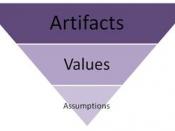In this piece of work you will hopefully learn about the different types of organisations with regard to management approaches as well as the organisational structure and culture of organisations.
Know before I go into explaining, what are the different types of management approaches, organisational structures and cultures, you maybe asking your self where does this all steam from. If you step back and look at the big picture all these areas come from Organisational Behaviour.
There are many definitions on what Organisational Behaviour is; one definition of Organisational behaviour is that it could provide as an umbrella for research that focuses on individuals and groups within the workplace. Research in this area examines individual processes, group characteristics and processes as well broader organisational processes. It also asks how these processes impact on organisational outcomes such as performance, stress, absenteeism and turnover.
Another definition could be that, Organizational behavior is a varied, interdisciplinary field of study concerned with the behavior of individuals and groups in organizations, and the interaction between organizations and their environment.
Below are some of the key areas of Organizational behavior.
* The behavior of individuals and groups in organizations. Some of these behaviors include judgment and decision-making, cooperation and competition, commitment, satisfaction, turnover and motivation.
* The systems, structures cultures and processes within organizations.
* All these influence the behavior of people who work in these organizations, and other people with whom the organization comes into contact. Some regularly researched organizational processes include leadership and decision-making.
* The founding, growth and demise of populations of organizations. This field is called organizational ecology, and is closely related to Sociology.
* The Interactions between organizations. These include interactions between a focal organization and its suppliers, customers, competitors, government agencies and other regulatory agencies.
* The interaction between...


